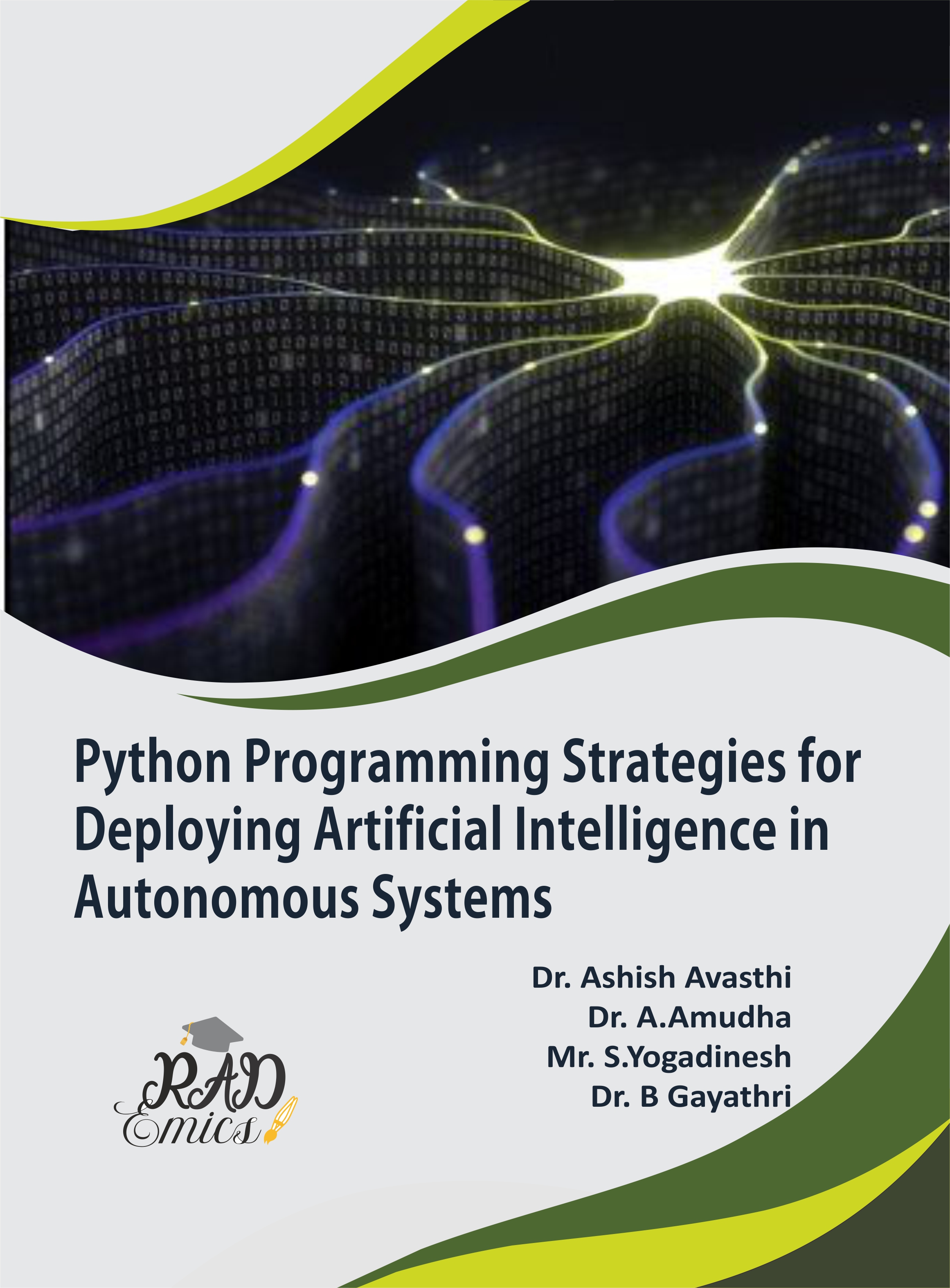
Author Name : Mohd. Asif Gandhi
Copyright: © 2024 | Pages: 28
DOI: 10.71443/9788197282140-14
Received: 23/05/2024 Accepted: 24/07/2024 Published: 23/08/2024
Ensuring the safety and reliability of autonomous systems has become a pivotal concern as these technologies advance and integrate into various sectors. This book chapter provides a comprehensive exploration of advanced Python techniques employed in formal verification, model checking, and the verification of machine learning algorithms for autonomous systems. Python's extensive ecosystem, including libraries and tools, facilitates rigorous testing and validation of autonomous technologies, enhancing their robustness and adherence to safety standards. Key areas covered include the integration of Python with external formal verification tools such as Coq and SPIN, the application of formal specification languages to model complex decision-making processes, and the challenges and best practices in Python-based model checking. Additionally, the chapter examines the verification of object detection models, focusing on performance metrics, robustness testing, and simulation integration. By bridging theoretical methods with practical implementations, this chapter aims to advance the field of autonomous system verification, contributing to the development of safer and more reliable autonomous technologies.
The rise of autonomous systems, including self-driving vehicles, unmanned aerial vehicles, and automated industrial robots, has revolutionized various industries by enhancing efficiency and performance [1]. However, the complexity and critical nature of these systems necessitate rigorous validation to ensure their safety and reliability in diverse and unpredictable environments [2]. The focus of this chapter was to delve into advanced Python techniques that are instrumental in formal verification, model checking, and the verification of machine learning algorithms specifically tailored for autonomous systems [3]. Python’s extensive ecosystem of libraries and tools offers unique advantages for these tasks, making it a preferred choice among researchers and developers in this domain [4].
Formal verification was a fundamental technique used to ensure that autonomous systems meet their specified requirements and behave as intended [5,6]. It involves mathematically proving the correctness of algorithms and models, which was essential for systems where failures could have severe consequences [7]. Python’s integration with formal verification tools such as Coq and SPIN provides a powerful platform for implementing these rigorous checks [8]. This chapter explores how Python can interface with these specialized tools to enhance the formal verification process, addressing the challenges and leveraging the strengths of both Python and the external systems [9,10].